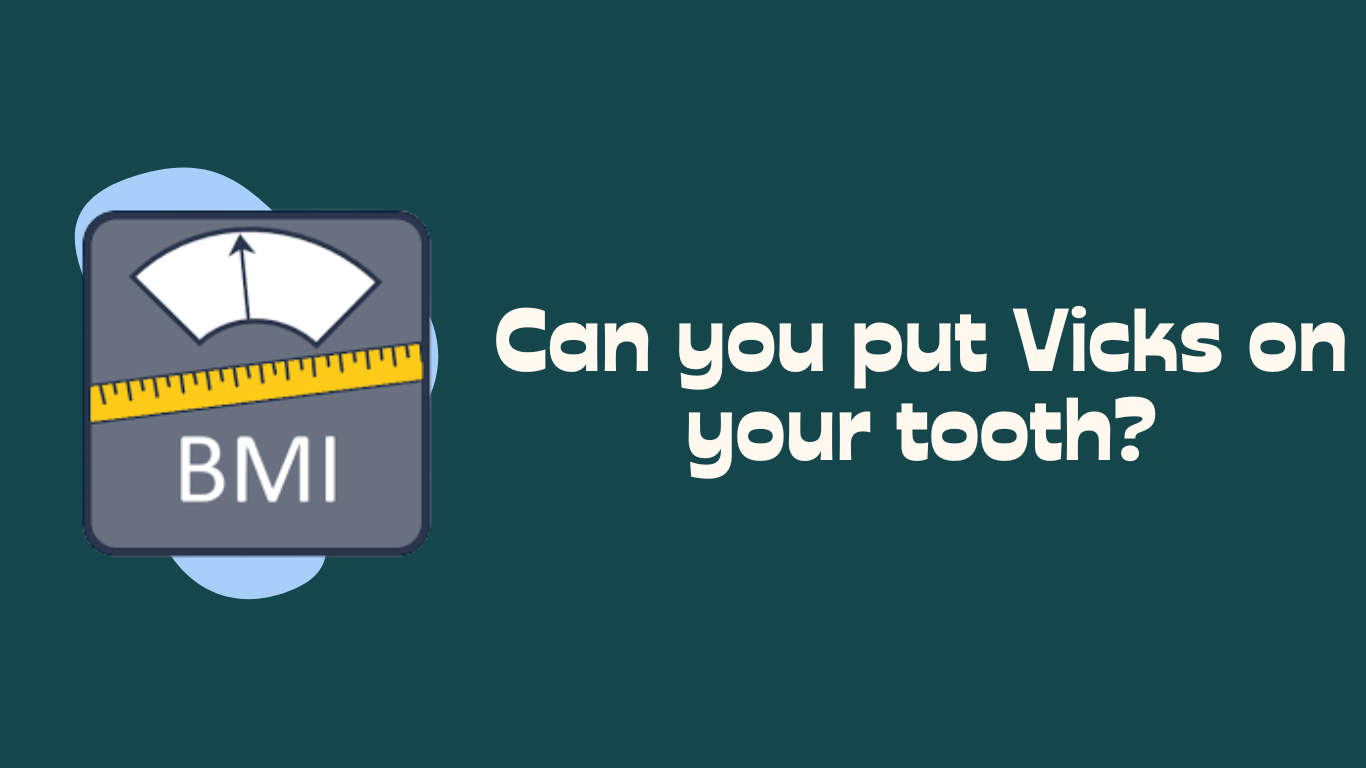Vicks VapoRub is a popular over-the-counter topical ointment used for relieving nasal congestion and cough symptoms. Its distinct aroma and cooling effect have made it a household name for treating common colds and flu. However, there are various misconceptions and alternative uses associated with Vicks VapoRub. One of the most debated topics is whether it is safe to put Vicks on your tooth. In this article, we will explore this question and shed light on the potential risks and benefits of using Vicks VapoRub for dental purposes.
Understanding Vicks VapoRub:
Vicks VapoRub contains a combination of active ingredients, including camphor, eucalyptus oil, and menthol, which work together to provide relief from nasal congestion. These ingredients have cooling and soothing properties that can temporarily alleviate symptoms. However, it is important to note that Vicks VapoRub is specifically designed for external use only and is not intended for oral consumption or direct application on teeth.
The Toothache Dilemma:
Toothaches can be excruciating, and individuals often look for quick and easy remedies to alleviate the pain. In the search for relief, some people consider applying Vicks VapoRub directly to the affected tooth or the surrounding area. Proponents of this method claim that the numbing and cooling sensation provided by Vicks can temporarily relieve toothache pain. However, dental professionals generally advise against this practice.
Risks of Applying Vicks to Your Tooth:
There are several reasons why applying Vicks VapoRub directly to your tooth is not recommended:
Ineffective Treatment: Vicks VapoRub is not formulated to target the underlying causes of toothaches, such as tooth decay or gum disease. While it might temporarily numb the area, it does not address the root issue, and the pain is likely to return.
Potential for Allergic Reactions: Vicks VapoRub contains ingredients that some individuals may be allergic to, such as camphor or eucalyptus oil. Applying it directly to your tooth or gums increases the risk of an adverse reaction, which can lead to further discomfort or complications.
Harmful Ingredients: Although Vicks VapoRub is generally safe when used as directed, its ingredients are not intended for oral use. Some of the components, such as camphor, can be toxic if ingested in large amounts.
Alternative Approaches for Toothache Relief:
Instead of resorting to potentially risky practices like applying Vicks VapoRub to your tooth, it is advisable to explore safer and more effective alternatives. Here are a few strategies you can try:
Over-the-Counter Pain Relievers: Nonsteroidal anti-inflammatory drugs (NSAIDs), such as ibuprofen, can help alleviate toothache pain by reducing inflammation. Follow the recommended dosage instructions and consult your dentist or pharmacist if you have any concerns. Visit NHS BMI Calculator to check your BMI.
Saltwater Rinse: Mix half a teaspoon of salt in eight ounces of warm water and swish the solution around your mouth for 30 seconds before spitting it out. This can help reduce inflammation and kill bacteria, providing temporary relief.
Cold Compress: Applying a cold compress or ice pack to the cheek or jaw area can help numb the area and reduce swelling, providing temporary relief from toothache pain.
Dental Appointment: It is essential to consult a dentist if you are experiencing persistent toothache pain. A dental professional can diagnose the underlying cause of the pain and recommend appropriate treatment options.
Conclusion:
While Vicks VapoRub may offer relief from nasal congestion and cough symptoms, it is not intended for dental use. Applying Vicks directly to your tooth or gums can be ineffective, potentially cause allergic reactions, and may contain harmful ingredients. It is always best to consult a dental professional for proper diagnosis and treatment of toothache pain. In the meantime, alternative methods such as over-the-counter pain relievers, salt water rinses, and cold compresses can provide temporary relief until you can seek professional dental care. Remember, maintaining good oral hygiene and regular dental check-ups are the best ways to prevent toothaches and maintain a healthy smile.
